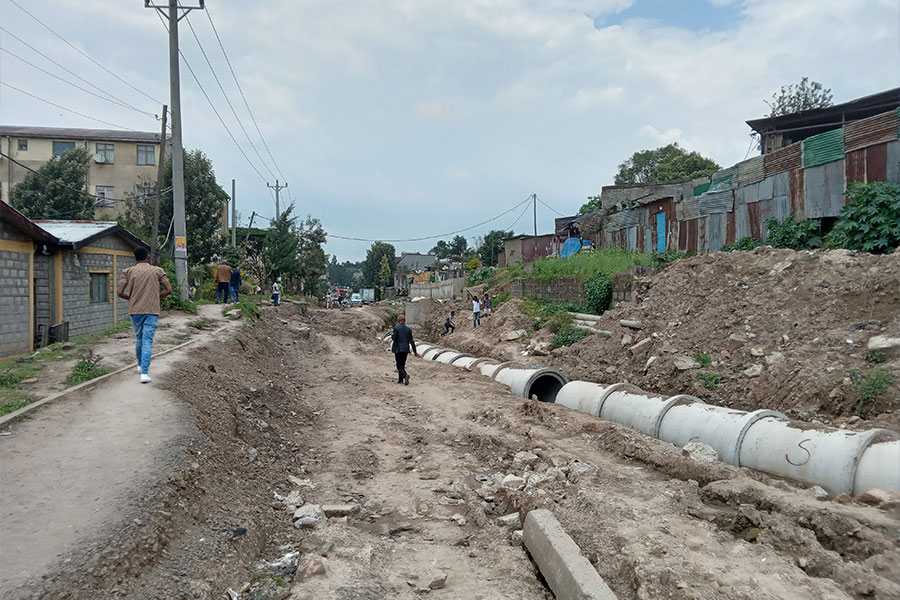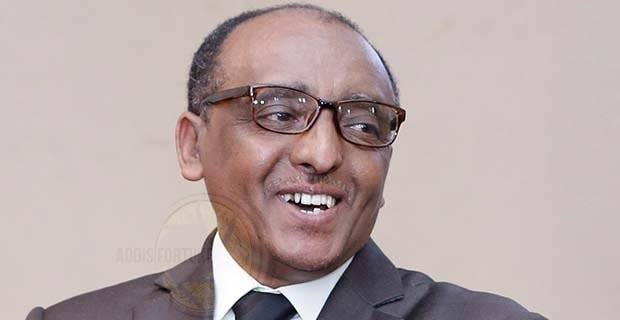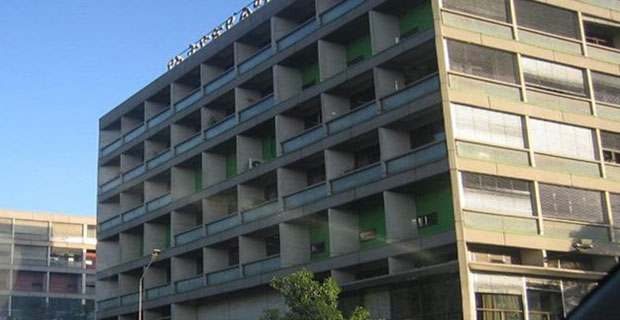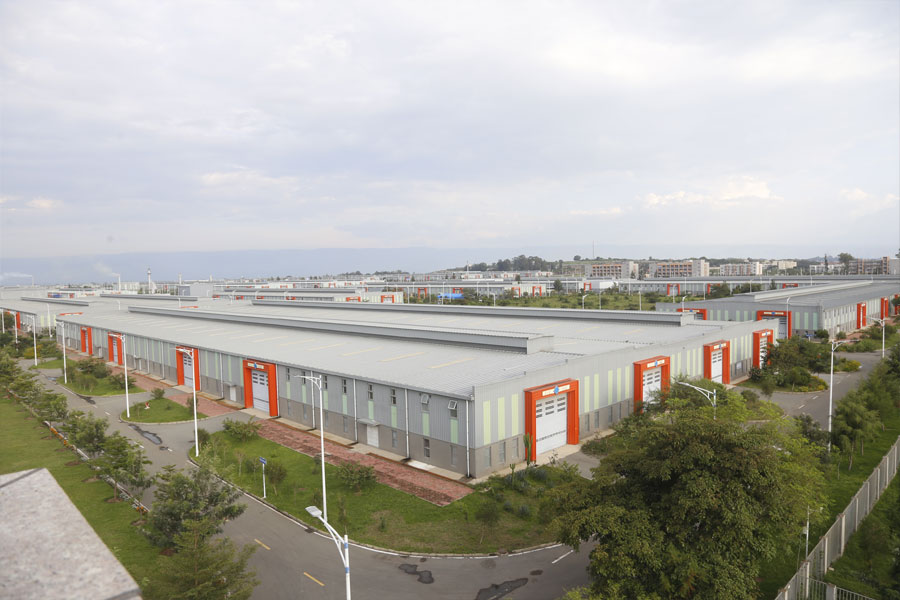
In-Picture | Sep 29,2024
Mar 9 , 2019
By
There is a simple, straightforward and yet effective tool that the Addis Abeba City Traffic Management Agency used to address severe congestion along the Ayat-Megenagna corridor during rush hour.
The street usually sees annoyingly high traffic during the morning hours, when residents living in the suburbs of Ayat and surrounding areas make their way to the city centre through this major artery. The adjacent lane, on the other hand, where traffic flows from Megenagna to Ayat is almost free given that the latter is mostly a residential area.
What the Agency decided was to allow the use of part of the uncongested lane, separated by plastic barriers, for traffic to flow to the Megenagna area. It is not the most ingenious plan, nor is it a big project the way government officials like it. But it works, with officials asserting that the time it takes to drive along the street has been decreased by at least a third.
The city did not have to blow through millions of Birr or create inconveniences for any of the city’s other residents. It addressed a fundamental problem faced by residents through a cost-efficient and responsible manner. This is good governance for a city, and a country, rife with a lack of it.
This particular case can be contrasted with another of the city’s proposals to address congestion. One includes the expensive project of increasing road infrastructure, while another has to do with getting people to use automobiles less and bicycling or walking to work.
It is important to have long-term plans, and it is crucial to be sober as well. In a city where it is rare to find a person whose place of employment is within walking distance of his home and in a country where vehicles are considered a sign of higher social status, I wish the city administration a great deal of luck in getting residents to bicycle to work. But it does not seem like a realistic plan.
Granted, our elected officials have a duty to address problems as holistically as possible. They are not in public office to give temporary relief. But the nation’s project management, planning and implementation capability, if experiences matter, is worrying and problematic.
Even projects as hyped and politically fundamental as the Grand Ethiopian Renaissance Dam seem to have cost the nation dearly. At this point, and given early analysis, it would be an achievement in itself if the project can pay back what it has cost.
And this is not to mention other current projects that have been ballyhooed despite the disappointment expressed by this very same administration about such massive investments. We all want the La Gare Eagle Hills and the 29 billion Br river beautification project in Addis Abeba to succeed but have a hard time swallowing that they will indeed bear fruit.
This is a government that has yet to learn to be restrained in its spending. Such habits will not go away easily, since it needs the active participation of offices in local, regional and federal levels. It is also a problem that can only be addressed slowly, given that checks and balances need to be introduced in government.
Ideas such as the Ayat-Megengna traffic policy are what will move Ethiopia forward. It is not lavish, and I doubt that officials could sell it with the public enthusiasm the La Gare Eagle Hills and riverbank beautification received. But it is effective and can be carried out with few resources that can be pooled from within the country. This is the sort of idea that will help the nation escape poverty, not hyped projects that are evidently too large in scale and sophisticated for the nation’s implementation capacity.
Ethiopia should not punch above its weight but strengthen its economy piece by piece, through networks, resources and ideas it can realistically pool in the country. This may not seem like a grand ambition, but it is a practical one many developed countries have followed.
PUBLISHED ON
Mar 09,2019 [ VOL
19 , NO
984]

In-Picture | Sep 29,2024

Radar | Sep 10,2022

Fortune News | Sep 14,2020

Radar | Jul 08,2023

Sunday with Eden | Oct 05,2024

Commentaries | Dec 14,2019

Radar | Oct 07,2023

Fortune News | Nov 29,2020

Fortune News | Mar 09,2019

Fortune News | Dec 04,2022

Photo Gallery | 173669 Views | May 06,2019

Photo Gallery | 163888 Views | Apr 26,2019

Photo Gallery | 153911 Views | Oct 06,2021

My Opinion | 136547 Views | Aug 14,2021
Editorial | Oct 11,2025

Dec 22 , 2024 . By TIZITA SHEWAFERAW
Charged with transforming colossal state-owned enterprises into modern and competitiv...

Aug 18 , 2024 . By AKSAH ITALO
Although predictable Yonas Zerihun's job in the ride-hailing service is not immune to...

Jul 28 , 2024 . By TIZITA SHEWAFERAW
Unhabitual, perhaps too many, Samuel Gebreyohannes, 38, used to occasionally enjoy a couple of beers at breakfast. However, he recently swit...

Jul 13 , 2024 . By AKSAH ITALO
Investors who rely on tractors, trucks, and field vehicles for commuting, transporting commodities, and f...

Oct 11 , 2025
Ladislas Farago, a roving Associated Press (AP) correspondent, arrived in Ethiopia in...

Oct 4 , 2025
Eyob Tekalegn (PhD) had been in the Governor's chair for only weeks when, on Septembe...

Sep 27 , 2025
Four years into an experiment with “shock therapy” in education, the national moo...

Sep 20 , 2025
Getachew Reda's return to the national stage was always going to stir attention. Once...

Oct 12 , 2025
Tomato prices in Addis Abeba have surged to unprecedented levels, with retail stands charging between 85 Br and 140 Br a kilo, nearly triple...

Oct 12 , 2025 . By BEZAWIT HULUAGER
A sweeping change in the vehicle licensing system has tilted the scales in favour of electric vehicle (EV...

Oct 12 , 2025 . By NAHOM AYELE
A simmering dispute between the legal profession and the federal government is nearing a breaking point,...

Oct 12 , 2025 . By NAHOM AYELE
A violent storm that ripped through the flower belt of Bishoftu (Debreziet), 45Km east of the capital, in...